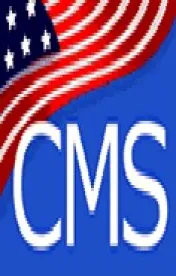Hospitals gearing up for implementation of the “2 Midnights Rule” have more time to prepare—or consider joining efforts to modify or rescind the rule—now that CMS has delayed implementation for a third time.
On January 31, 2014, the Centers for Medicare and Medicaid Services (CMS) announced a further delay in the implementation of the regulations and review criteria contained in CMS Final Rule 1599-F, commonly referred to as the “2 Midnights Rule” (the Rule). As a result, Medicare Administrative Contractors (MACs) are not to audit for compliance with the Rule until October 1, 2014. The Rule’s previous effective date of September 2013 was first delayed until December 31, 2013; and further postponed to March 31, 2014, prior to this most recent delay.
Included as part of the inpatient prospective payment system rules for fiscal year 2014, the Rule provides that an admission would qualify for Part A reimbursement where the physician admits the patient, with the expectation that the treatment will require a two-night inpatient stay—hence the reference as the “2 Midnights Rule.” The Rule was enacted, according to CMS, to modify and clarify the agency’s “longstanding policy on how Medicare contractors review inpatient hospital … admissions for payment purposes” and to “respond[ ] to … hospital calls for more guidance about when a beneficiary is appropriately treated … as an inpatient,” rather than as an observation patient or other outpatient status. Accordingly, under the Rule, certain procedures, tests and services would only be viewed as “medically necessary” and payment made as part of a Part A inpatient stay if the requirements of the Rule were met. Otherwise, the episode of care might be paid as an “observation” stay—meaning additional out-of-pocket costs for patients and issues with reimbursement for acute care and critical access hospital providers.
The most recent delay means that the CMS probe and educate period for the Rule is extended. As described by CMS, MACs will continue to select between 10–25 claims per hospital with admission dates of March 31, 2014, through September 30, 2014, for review and compliance with CMS 1599-F. As such, pre-payment review will continue for admission dates between October 1, 2013, and September 30, 2014, and MACs will conduct outreach and education efforts based on their findings. CMS will also hold educational sessions with hospitals through September 30, 2014. Of importance to hospitals, MACs and recovery audit contractors (RACs) will not conduct pre- or post-payment status reviews for compliance with the Rule for inpatient hospital claims with admission dates between October 1, 2013, and October 1, 2014.
Note that the delay in implementation of the Rule does not affect other MAC and RAC auditing and recovery initiatives, including RAC post-payment audits of short stays and medical necessity under then-current requirements.
The Rule has been the subject of intense lobbying efforts from the hospital provider community since it was first proposed. The American Hospital Association (AHA), American Medical Association (AMA), numerous state hospital and professional associations and other trade groups have lodged complaints and lobbied against the Rule. A joint letter from the AHA and AMA to CMS in November 2013 specifically requested a delay in implementation until October 2014, noting that the Rule was based on a policy that was “fundamentally flawed, overly complicated” and lacked the “clarity needed for consistent decision-making” by providers and reviewers and undermines medical judgment regarding patient care.
In December 2013, legislation was introduced with the intent to delay implementation of the Rule and require additional changes. The Two Midnight-Rule Delay Act of 2013, H.R.3698, legislation introduced on December 11, 2013, by Representative Gerlach (D-PA) would, among other effects, prohibit CMS from enforcing any aspect of the Rule (including the provisions applicable to critical access hospitals) through September 30, 2014, and prohibit both MACs and RACs from denying a claim for inpatient services on the basis that the services were not medically necessary because the length of stay was too short, or because the contractor believed the services should have been furnished on an outpatient basis, or for failure to comply with the physician order documentation requirements required under the Rule. While these components of the legislation will need to be evaluated in light of the most recent delay in implementation, it demonstrates some of the actions taken in an attempt to delay or revise the Rule.
In addition, the AHA (along with a number of regional hospital associations and health systems) recently moved in the direction of a federal court action on this issue. On January 23, 2014, the AHA filed an appeal with the Provider Reimbursement Review Board (PRRB) requesting expedited judicial review of claims regarding reimbursement changes related to the Rule. Among the claims is that changes are “unlawful,” “arbitrary and capricious” and fail to comply with the requirements of the Administrative Procedure Act for notice and comment.
Hospitals geared up to make process changes in time for the prior compliance deadline of March 31, 2014 now have additional time to plan and prepare and, perhaps, join in efforts to further revise or rescind the Rule spearheaded by hospital and trade groups undertaking the PRRB appeal.





 />i
/>i
